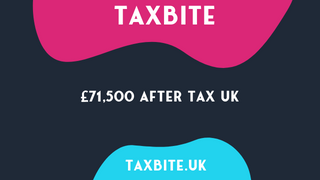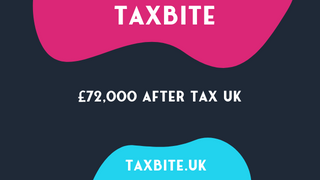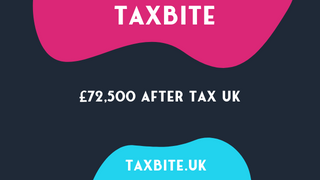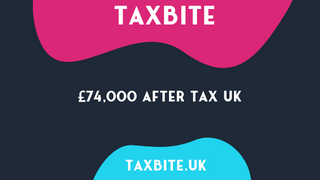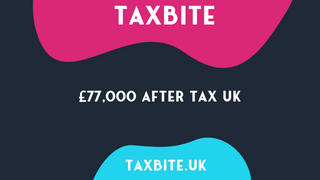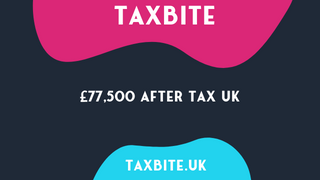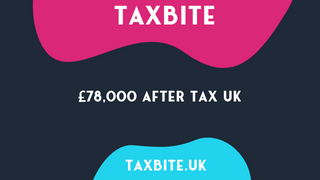Confused about how taxation in the UK works and what your take-home pay will be in 2022/23? This section has got you covered. We’ll delve into income tax, national insurance, and the tax year to help you understand how much you’ll be paying and what you’ll be taking home. The UK tax year begins on April 6th and ends on April 5th of the following year.
In the tax year 2022/23, the personal allowance (the amount you can earn tax-free) is £12,570. For income between £12,571 and £50,270, you’ll pay income tax at a rate of 20%. Income between £50,271 and £150,000 will be taxed at a rate of 40%, and any income over £150,000 will be taxed at a rate of 45%.
You’ll also have to pay national insurance contributions if you earn more than £184 per week. The rate is 12% for earnings between £184 and £967 per week, and 2% on anything you earn over that.
With the help of this information from reliable sources, you can plan your finances for 2022/23 and beyond with confidence.
Income Tax is something that individuals, companies and other entities in the UK have to pay. HMRC collects it on behalf of the government. So, what is this tax? It is calculated based on a percentage of your taxable income. This includes wages, self-employed earnings, pensions, investments, and rental properties. How much you pay depends on your income.
In the UK, Income Tax is divided into four tax bands. They are the Personal Allowance Band, Basic Rate Band, Higher Rate Band, and Additional Rate Band. Each band has its own tax rate. The Personal Allowance is the amount of income you can earn before paying Income Tax. For 2021/22 it is £12,570. If your income is below this, you may not have to pay any Income Tax.
There are several reliefs and allowances that can reduce your taxable income. These include Marriage Allowance and Blind Person’s Allowance. Also, donations to charity can lessen your overall Income Tax liability. Taking advantage of these can reduce the amount of tax you pay.
In the UK, National Insurance is similar to social security or Medicare in the US. People make contributions for certain state benefits. These include unemployment/sickness benefits, pensions and healthcare.
Your paycheck is reduced by National Insurance payments, as well as tax. It depends on your earnings and employment status. Class 1 contributions reduce salary if you are employed. Self-employed people pay Class 2 or 4 contributions based on their profits. The rates and thresholds change yearly and depend on income.
National Insurance gives you entitlement to state benefits based on your contribution record. These benefits include the State Pension, Maternity Allowance, Bereavement Support Payment etc. But, to get most benefits, you need to pay enough National Insurance contributions in the qualifying year period.
It is important to keep track of your contribution record and understand your entitlement to receive benefits, as it can affect your take-home pay and future financial security.
Lastly, the UK tax year runs from April 6th to April 5th of the following year. So, keep this in mind when making National Insurance contributions and filing tax returns.
The tax year is a twelve-month period. It begins on 6th April and ends on 5th April the next year. During this time, taxpayers must report their income and capital gains to HMRC. It originates from medieval times when King Edward III changed the start of the fiscal year from Christmas Day to 25th March.
The tax year serves practical purposes. It simplifies record-keeping for businesses and individuals. HMRC can process taxes in batches more easily. The government can plan its revenue expenditure based on estimated income and expenditure over a specific financial period.
Self-employed taxpayers are impacted differently from wage-earners. Unlike wage earners, self-employed individuals can choose their own accounting period.
Taxation policies change yearly. This affects allowances, rate thresholds, or deductions. These modifications usually come into effect at the start of the new tax year. Taxpayers should remain informed about any updates that could affect their reporting obligations.
For net income, a tax calculator can be used. It is easy to follow the simple steps.
If you’re trying to get a handle on your finances, calculating your net income is a crucial step. In this section, we’ll explore how to use a tax calculator to determine your take-home pay after deductions. We’ll cover different ways to enter your salary into the calculator, as well as how to understand the relationship between your gross salary, taxes, net pay, and contributions to pension plans. With these tools, you’ll be equipped to make informed decisions about your finances and plan for a comfortable future.
Net income after taxes is important to figure out. A tax calculator can help with this. Here are the steps:
There are factors that could affect the amount of tax you pay. Use a salary sacrifice scheme or contribute more to a company pension to stay below a higher rate threshold.
It’s essential to use a tax calculator to know your net pay. Don’t be surprised by unexpected costs. Be aware of exactly how much money you’ll take home. Knowing your salary is key to accurately calculating your net pay.
Grasping contracted salary is major when totting up your net pay. Contracted salary is the fixed amount an employee and employer have agreed on for their income. It includes all potential bonuses, overtime pay, and company perks that may be included in the compensation package. There are various types of contracted salaries like hourly rates or fixed salaries paid monthly or yearly.
Recognizing what constitutes as contracted salary is essential when estimating your net pay. Net pay is the amount of money you acquire after all deductions have been made, including tax and national insurance contributions (NICs). A high contracted salary does not always mean a higher net pay, as bonuses and other benefits could affect how much tax and NICs are deducted from your paycheck each month.
Therefore, it’s vital to comprehend the difference between what is included in your contracted salary and what is extra earnings in order to make the right calculations. For example, an employee who has recently got a bonus may not recognize that it results in more taxes taken from their salary than usual. By understanding their contracted salary and what does not fall under it, this employee can compute their net pay more precisely and make plans for their finances accordingly.
It’s key to know how pensions influence your taxable income. Your tax bill could be reduced by lowering your taxable income through pension contributions. These are taken out of gross earnings before tax is applied. The tax-free pension amount depends on the kind of pension and money from a defined benefit pension. For 2021-2022, the yearly allowance is £40k. Going over this has taxes and charges. Making contributions can lead to greater long-term savings and lower current tax bills. So, pensions are part of financial planning.
Navigating tax rates and allowances can be challenging, but with some know-how, you can make the most of your income in the UK. Understanding tax rates and personal allowances is crucial, and this section will guide you through the basics of UK taxes and explain how the basic tax rate affects your income. It’s important to stay informed and prepared for upcoming changes expected to take place in 2023.
Taxes in the UK can be overwhelming and perplexing. Knowing tax rates is essential for managing finances. Self-employed, companies, and people have different tax responsibilities and rates. Personal allowance is a tax rate that serves as a threshold. It’s taken out from a person’s earnings before any PAYE is calculated.
If salary surpasses the personal allowance, the basic tax rate income tax is applied. Earning up to £50,000 is charged with 20% tax. People earning more than that sum are taxed at higher levels. Other aspects such as pension payments, student loan repayments, bonuses, and salary sacrifice schemes can affect tax calculations and influence take-home pay.
To comprehend how taxes work in the UK, consider someone who earns £70,000 with regular deductions, including a pension contribution or student loan repayment plan. A good tax calculator can help work out the exact money they take home each year after taxes are deducted.
In conclusion, taking time to research and understand tax rates in the UK can help predict actual paycheque amounts more accurately every month or year-end in line with one’s financial objectives.
A Personal Allowance is a must when it comes to UK tax planning. This is the amount of income an individual can make without paying any taxes. The UK Government sets this every year, taking into account factors such as age, income, and residence status.
It’s noteworthy that those earning above a certain threshold will see their Personal Allowance gradually reduced. This allowance serves as a tax-free threshold. It is usually taken out of the total taxable income before calculating the tax liability for the year.
For instance, if someone’s total taxable income is £40,000 per annum and they have a Personal Allowance of £12,570 per annum for 2021/22, then their tax liability will be calculated on only £27,430.
Savings and dividends exceeding £2,000 a year do not count as part of the Personal Allowance. Further, transferable allowances between married couples or civil partners are also subject to specific criteria.
Knowing one’s Personal Allowance will help plan precisely the amount of tax needed for the financial year. This helps calculate taxes accurately and avoid overpaying or underpaying. This is essential for budgeting in the short and long-term, such as retirement planning or during employment transitions or layoffs.
The basic tax rate impacts your income tax liability in the UK. It is calculated as a percentage of taxable income and can significantly reduce your net pay. If you earn up to £12,570, you don’t have to pay any income tax – this falls within your personal allowance limit. But, those earning between £12,571 and £50,270, will be subject to a 20% basic tax rate. Above £50,270, and below £150,000, the rate is 40%, with an extra 45% on top for those who earn over £150,000.
You can reduce the amount of tax paid by using various allowances and reliefs, like pension contributions or gift aid donations. To make the most of this, it’s important to plan your finances accordingly.
In conclusion, understanding the basic tax rate is key to calculating your income tax liability in the UK. It helps you understand how much you’ll have to pay and what deductions can help reduce your tax amount.
Calculating your net income on a £70,000 gross income may seem like a daunting task, but fear not! In this section, we’ll break it down into three easy-to-follow sub-sections.
Discover how to calculate your gross income, use the tax calculator to determine your net income accurately, and learn how bonuses generate additional tax. With this knowledge, you’ll be able to navigate your finances like a pro and plan for a profitable future.
Gross income is an individual’s total money earned before deductions like taxes and other payments. To accurately calculate your gross income, you must know what makes it up and follow five steps:
It can be trickier if you have multiple sources of income. You may need to put these extra earnings on a self-assessment tax return. Knowing how to work out your gross income helps you manage your cash better.
Tax calculators can be a great aid for calculating your net income. Just enter your salary, pension contributions and student loan repayments. Then click ‘Calculate’!
However, it’s not always 100% accurate, especially with extra tax from bonuses. Double-check all your details before you hit that button.
Tax calculators can also help you plan for the future. Keep track of changes in taxation rates or allowances to make smarter financial decisions.
So, if you want to calculate your net income accurately, use a tax calculator! Here we’ve provided useful info on how to best utilize them.
Receiving bonuses can mean paying more taxes than usual. These are classified as ‘supplemental income’, so they’re subject to different rates. Employers deduct income taxes using PAYE. Those earning £50,000 or less face a 20% deduction, whilst those above this amount are taxed at 45%.
To reduce the tax paid on a bonus, you can contribute to a pension scheme or give to charity with Gift Aid. This lowers the taxable income, reducing liabilities. But, take note – it also reduces your net pay.
A bonus may also affect your Personal Allowance. This is set at £12,570 for the 2021/2022 tax year. If you receive a large bonus, it could reduce or eliminate this allowance. It does this by decreasing by £1 for every £2 earned over £100,000.
Employers must include any bonuses when calculating AEP for National Insurance contributions. So, both the employee and employer may have to pay extra NI.
In short, bonuses generate extra taxes due to PAYE deductions. You may also lose some of your Personal Allowance. However, contributing to pensions or charities can lower taxable income and minimize liabilities. To calculate net income, bear in mind student loan repayments, postgraduate plans, and salary sacrifice.
When calculating your net income, it is crucial to consider the deductions that can affect your take-home pay. This section covers essential factors such as student loan repayments and the postgraduate loan plan, as well as the effects of salary sacrifice on your overall net income. By comprehending these deductions, you can adequately prepare yourself for your after-tax income in 2023.
Student loans are a financial burden. People in the UK must understand how to repay them. UK government loans are due when salary reaches £27,295 a year.
Net income must include education payments. There are two types of student loan plans: Plan 1 for before 2012 and Plan 2 for after. Each plan has different rates and thresholds for repayment. It’s important to know these details.
Repayments come from gross pay, not net. It’s necessary to know how much to pay each month.
For example, Mary earns £35,000 with a bonus of £3,500 and has a Plan 2 student loan of £50,000. Her ILP deduction reduces her net pay. She needs to save despite the deduction. This will reduce the total amount due and the interest it collects.
Understanding student loan repayment is key to managing repayment.
Postgraduate loan plans are a form of government loan that can have a big effect on income. They are made to help people to study postgraduate courses, covering tuition fees and living expenses.
The effect of the loan on income depends on how it is paid back. One plus of postgraduate loans is that they are not taxed or have National Insurance contributions. Repayments are based on what you earn when you finish studying. You must start repaying the loan if your yearly income is over £25,725. This will be 6% for each pound over the threshold.
It is worth noting that the repayment system for postgraduate loans is different from undergraduate loans. Undergrad loans have an interest rate of RPI + 3%, but postgraduate loans have RPI + 3% during study and RPI after graduation. Also, postgraduate repayment periods depend only on earnings, which means they can be different lengths.
To sum up, taking out a postgraduate loan plan can affect disposable income in various ways. If you earn above £25,725, you must begin repaying the loan, which can raise your debts. Low earnings after graduation can be difficult if you have to start paying the loan. It is important to plan and manage money well when thinking about taking out such a loan. One must understand how salary sacrifice affects net income in the UK, as this may require giving up some things now to avoid them later.
Salary sacrifice is an agreement between an employee and their employer. The employee agrees to give up a portion of their salary for non-cash benefits such as extra pension contributions or childcare vouchers. This can affect their net income.
The employee sacrifices a portion of their gross income, which reduces their tax liability and national insurance (NI) payments. This reduces the amount of money subject to income tax and NI payments. But, there are limits on how much they can give.
For example, an employee earning £35,000 per year who decides to add an extra £5,000 through salary sacrifice, their gross taxable income will reduce to £30,000. This lowers the income tax and NI contributions. So, their total net income goes up due to salary sacrifice.
It’s important to remember that participating in some salary sacrifices could affect other financial arrangements. For example, mortgages or loans could be based on gross earnings rather than net pay. Employees should seek advice before joining any such schemes, as it could affect future pension benefits or increase tax liabilities.
Looking to compare your net income from various tax years? Look no further! In this section, we’ll break down the changes to taxes on a yearly, monthly, and weekly basis and dive into the intricacies of national insurance contributions and income tax. Get ready to become a tax expert and take charge of your financial future, starting with understanding the net income you’ll bring home in 2023 – a cool £70,000 before tax.
Taxes in the UK change often. It’s essential to stay up-to-date to plan for the future. The government raises rates when more money is needed. Taxation affects people differently, depending on income and other circumstances. Therefore, it is vital to keep informed of changes by reading publications or consulting professionals.
To avoid penalties or lost chances, taxpayers must know the implications of new regulations. They must also be aware of how tax changes might affect investment strategies and personal finance planning. Understanding how taxes change every year, month and week is important. Educating oneself through reliable sources is a good place to start.
Missing out on key tax information can have a bad effect on finances. Don’t wait until it’s too late. Keep yourself informed and educated about tax changes to prepare.
Tax and National Insurance are very important when you work out your net income in the UK. National Insurance is a tax which pays for things like the State Pension and the NHS. It’s based on your pay and different rates apply to different income levels. “Tax Also” refers to other taxes like council tax, pension contributions and income tax.
When you use a tax calculator, it’s important to remember these deductions. For example, if you earn £70,000 a year and have student loan payments of £5,000 a year, you’ll get less net income.
National Insurance and other taxes can change every year. It’s important to keep up-to-date so that you can work out your net income accurately.
In conclusion, knowing about Tax and National Insurance is key when you calculate your net income in the UK. Add in National Insurance contributions and other taxes to understand what you’ll really get each month or year.
Understanding your net income after taxes is essential for planning your finances and ensuring financial stability. Net income refers to the amount earned after deduction of taxes, social security, and other standard deductions. In this section, we’ll explore the importance of comprehending your net income after taxes and how the tax calculator accurately calculates it. Additionally, we’ll discuss the significance of planning for your net income in the future, allowing you to budget accurately for your day-to-day expenses and even invest wisely in your future.
Understanding your net income after taxes is vital for managing finances in the UK. Knowing how much money you have left after deductions helps you budget and plan expenses. The tax system in the UK can be tricky. But, knowing your net income after taxes gives a clear view of your financial standing.
Calculating net income is the first step. A tax calculator can help determine how much you will take home after taxes. Also, being aware of different tax rates and allowances boosts understanding of the tax system.
It’s important to consider deductions that affect net income – like student loans and pension contributions. Being aware of these factors will influence future decisions on salary sacrifice or investments.
Looking at past and current tax years provides a broader view for financial planning. Taxes can change with inflation or government policies. So, accounting for possible changes in taxation is key when considering long-term financial goals. It’s important to have a good understanding of your net income after taxes to manage finances in the UK efficiently.
The Tax Calculator is an awesome tool that can work out your take-home pay. It deducts taxes like Income Tax and National Insurance from your gross pay. Variables, such as pensions, Student Loan repayments, and Postgraduate Loan Plans, are also taken into account. A Salary Sacrifice scheme can also affect your taxable income.
Refer to the table below to understand how the tax calculator works. It shows Gross Income, Deductions, Allowances, and Net Income. For example, if you earn £70,000 with £21,515 in Deductions and £12,570 in Allowances, your Net Income will be £35,915.
| Gross Income | Deductions | Allowances | Net Income |
|---|---|---|---|
| £70,000 | £21,515 | £12,570 | £35,915 |
Bonuses are great, but remember that they bring extra tax. To know what you owe, it’s essential to learn the current tax rates and allowances. That way, you can plan for your financial future.
If you want to plan for your future earnings, it’s essential to know how taxes and deductions affect you. We suggest using a tax calculator for accurate estimates. It’s also important to be aware of tax rates and allowances, like personal allowances and basic tax rates, as they can affect your take-home pay.
Additionally, consider any extra deductions that could change your income. For instance, student loan repayments, postgraduate loan plans, and salary sacrifice can all influence your earnings.
It’s vital to keep up with changes to tax laws, like national tax changes. This will help you make informed decisions and keep your financial planning on track.
To plan for your future net income effectively, you should understand how taxes work in the UK. By taking into account applicable deductions and staying up-to-date on tax law changes, you can create a realistic plan for financial stability.
Note: The above information is based on the assumption that the individual is not eligible for any allowances, benefits, or deductions other than the income tax and National Insurance contributions. Actual take-home pay may vary based on individual circumstances.
If you earn £70,000 a year in the UK in 2023, you will be taxed £15,432, and your net pay will be £49,650 per year or £4,137 per month after taxes and National Insurance contributions.
The marginal tax rate for someone earning £70,000 a year in 2023 is 43.3%. This means that any immediate additional income will be taxed at this rate.
If you receive a £5,000 bonus in 2023 earning £70,000 a year, you will generate an extra net income of £2,838.
The tax rate for income up to £12,570 a year in 2023 is 0% income tax, which is your personal tax-free allowance.
If you’re earning £70,000 a year in 2023, you will have to work up to 16 weeks in the tax year to pay off the tax and National Insurance contributions due on your income.
Based on a normal work week of 40 hours, someone earning £70,000 a year in 2023 would have an hourly rate of £33.65.
Here’s a list of similar salaries:



